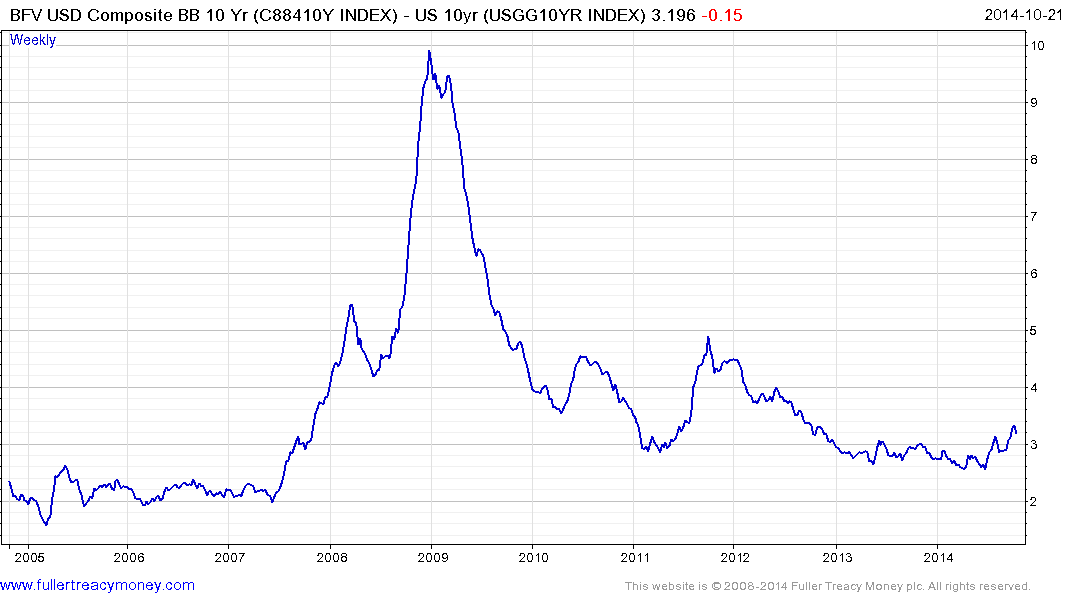Fears That Pimco and Other Big Firms Could Be Unable to Unload Risky Bonds
Thanks to a subscriber for this article by Landon Thomas Jr. for The New York Times which may be of interest. Here is a section:
“Credit-focused mutual funds have seen massive inflows and have become the largest holders of corporate and foreign bonds,” José Viñals, the head of the I.M.F.’s financial-markets division, said at a news conference in Washington last week. “These inflows have created a liquidity illusion, which can amplify shocks and lead to sharper falls in the market.”
The issue has also drawn the attention of the Federal Reserve Bank of New York.
In its paper, the I.M.F. highlighted high-yield bonds issued by Ally Financial, SLM and the insurance giant American International Group. Pimco owns at least 25 percent of the outstanding debt of each of those three companies.
Outside the United States, the numbers were even starker: Pimco owned close to 50 percent of a number of foreign bonds. And it controlled over 40 percent of the debt issued by the Bank of China, just under 40 percent of the State Bank of India and close to 30 percent of the Spanish bank BBVA.
Of course, Pimco has company in accumulating outsize positions in these and other companies.
?As the I.M.F. report lays out, Franklin Templeton Investments has large stakes in the high-yield bonds issued by Tenet Healthcare and the payment processor First Data, among others. Franklin has also bet big on bonds from Ireland and Ukraine. According to the fund, managers like Fidelity Investments, Dodge & Cox and BlackRock have significant, though smaller, positions in selected debt issues.
That asset management companies have emerged as the main providers of riskier types of credit to companies around the world is a little-appreciated consequence of increased regulation of banks following the financial crisis.
Making a call on the actual rather than perceived default risk of an institution or country and then accumulating its bonds is what a fund manager is supposed to do. Buying Italian, Spanish, Irish sovereigns in the teeth of the Eurozone’s debt crisis was a courageous step and was the right thing to do. Betting that SLM Corp (education loans) survive because the US Government bailed out Fannie and Freddie was also an astute call.
Fund managers boosted the returns from taking these positions by concentrating their portfolios. This is particularly true of Pimco and Franklin Templeton who now hold substantial positions in a relatively small number of issuers.
Veteran subscribers will know that we are not averse to concentrated portfolios but there is a time to reap and time to sow. Concentrated positions are acceptable within a portfolio when the instruments are liquid. However, when a fund accumulates a majority stake in any one issuer they are exposed to liquidity risk because there may not be a ready market in the event they wish to sell.
Bond funds perform well when momentum drives the price of securities higher because yields are locked in and price appreciation flatters total return. The duration of the portfolio comes into focus when momentum peters out. As a private individual, if I buy a bond at a distressed price, I can hold it to maturity so there is no need to monitor the price if I am happy with the yield and the default probability. A bond fund manager has to manage his duration. If some bonds are being held to maturity because the secondary market is illiquid, any additional capital raised through inflows, coupons and maturities needs to be reinvested in longer dated securities (the bond ladder) in order for the fund to maintain its duration target.
Additionally, the fund is constantly valued on a mark to market basis. If the value of bonds one aims to hold to maturity drops, redemption risk increases. Banks have a risk-based capital requirement they have to hold in order to meet potential demand for the return of deposits. This is not true of fund houses.

Taking these factors into consideration there is a non-trivial risk that funds with concentrated positions in illiquid instruments could experience stress in the event of a more substantial widening of credit spreads.


